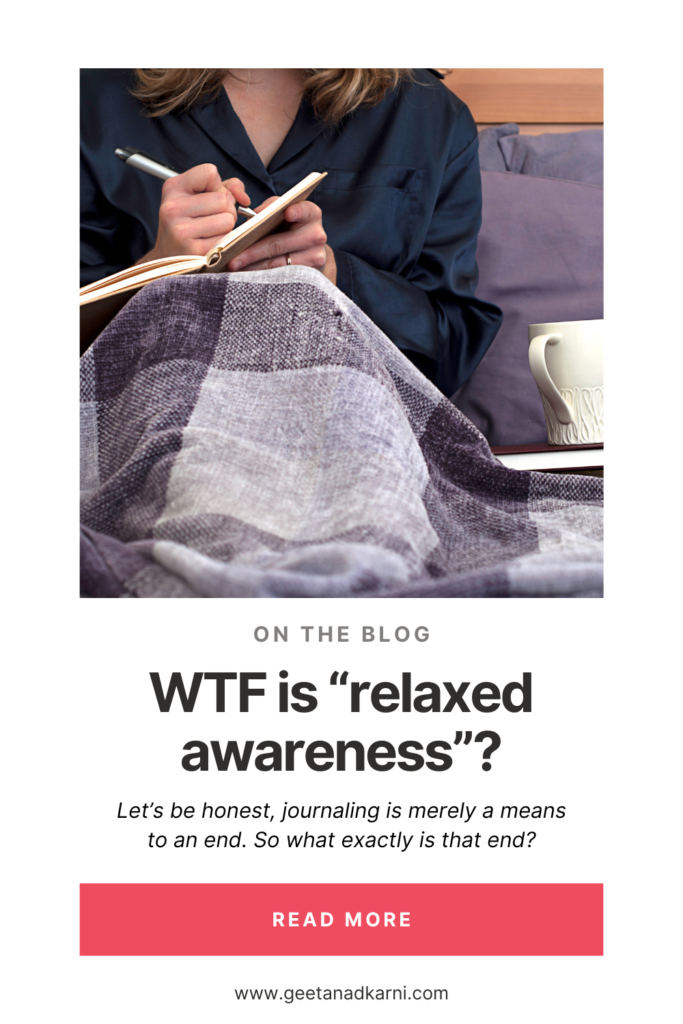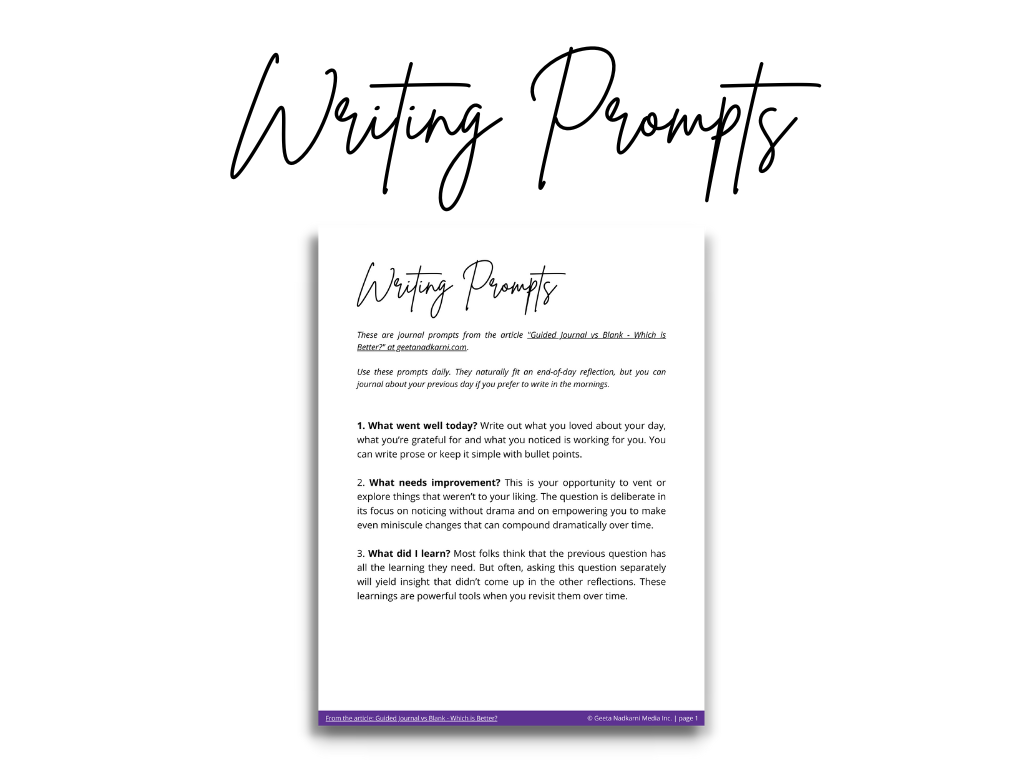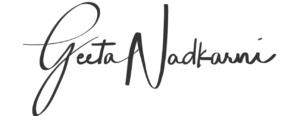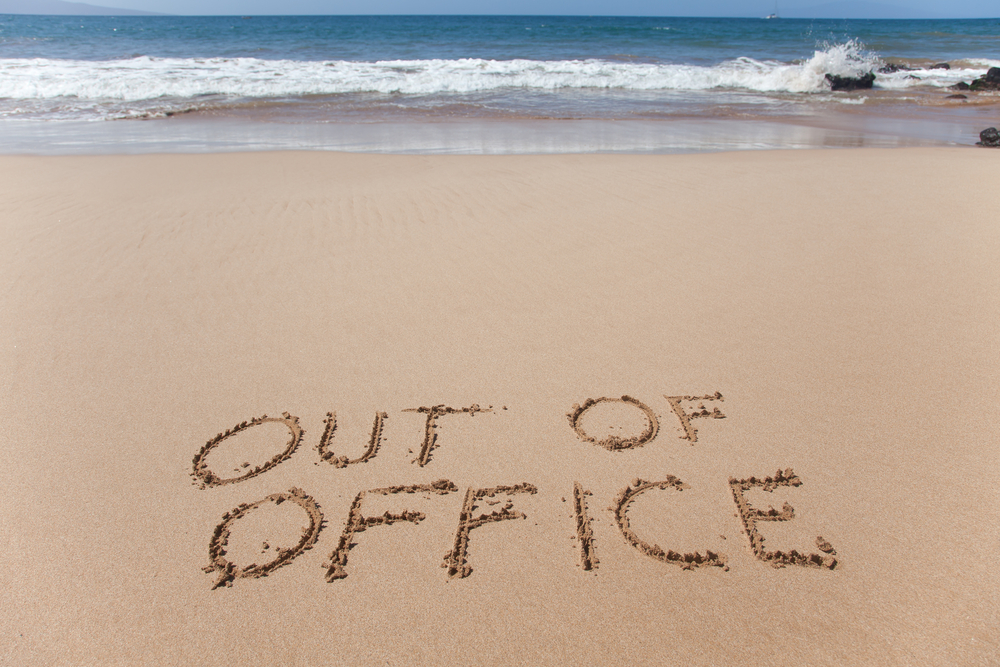There’s a beautiful quote I read from philosopher and podcast god, Sam Harris, on why he started the Waking Up app.
I know it’s early for a tangent, but if you haven’t already tried his app, I cannot recommend it enough. It’s the thinking person’s guide to meditation and better living. Use this link for a free 30 day trial that doesn’t require a credit card.
Back to that quote from Sam:
“The purpose of Waking Up isn’t just to help you meditate. It’s to help you live a more examined, fulfilling life altogether—to help close the gap between the person you want to be and the person you seem to be in this moment.”
To me, journaling has always been like written meditation.
A technique for fidgety people who need to do something with their bodies in order to still their minds and access their inner wisdom (though journaling and meditation are fabulously complementary and work even better when used together).
Of course journaling can be lots of other things (just as meditation comes in all sorts of forms): it can be used for artistic expression, analysis, planning, note-taking for memory enhancement, idea connection and innovation, and so much more.
But most people who come to journaling come to it at least a few times in their lives when they seek solace.
A place to rest.
A place to ask terrifying questions that might have confronting answers.
A place to figure out what they might have done to make a bad situation worse.
A place to face inconvenient truths where they can control the pace of revelation.
A place to make sense of senseless tragedy.
A place to feel all their feelings and express them without hurting anyone – even themselves.
A place to take back a sense of control.
When journaling is at its most powerful, it’s not about what prompts you’re using or how many pages you write…
… it’s about whether you’ve been able to shed the skin of your worry and fear and step into a quieter, more nourishing space and see what’s hurting you… differently. More productively.
It’s about whether you’re able to think in a way that serves your well being.
Ultimately, in my mind at least, the real goal of journaling is to teach ourselves to think better. To shorten the time between any stimulus and the response that fosters the development of our highest potential.
This is what relaxed awareness is.
It’s a state of being, a way of thinking – almost a frequency of thought – that turns down the volume on the reactive and introduces acceptance and creativity to the mix.
It allows us to examine the facts of the matter without drama or catastrophizing.
Relaxed awareness allows us to consider the negatives and the positives of the situation and get a more nuanced understanding of how it came to be.
And typically, it starts on the page and then, as we do it over and over and build neural pathways, it becomes easier to access as we go about everyday life.

“Relaxed” or “accepting awareness”
A state of perception where there is minimal resistance to the truth that is being presented. It allows us to calmly assess and take the action that serves our highest good.
As you can imagine, this is an ideal.
A horizon at which most of us won’t get a permanent address in this lifetime. But even infrequent visits can dramatically alter our quality of life for the better.
And that takes practice.
Often just writing down our stream of consciousness; whatever comes to mind – a process called “freewriting” is enough to unlock relaxed awareness.
This might be because acknowledging our negative thoughts and emotions can free up the bandwidth that our conscious mind was using to shield us from them. And that alone can create calm.
If you’re in a deeper state of anxiety and want to prime yourself for fruitful process journaling, you can also use this simple breathing technique to center yourself.
Breathe for relaxed awareness:
- Breathe in for 3 counts expanding your ribs and belly.
- Hold for 1.
- Breathe out for 5 counts, fully emptying your lungs.
- Feel your body releasing tension – do a body scan as you breathe, deliberately relaxing muscles that feel tight.
- Repeat until you feel calmer.
Do not fight tears or anger that might well up – the whole purpose is to free up the emotions so you can think clearly again. Allow yourself to feel whatever you feel and keep breathing.
Why relaxed awareness?
Answers that come from relaxed awareness are often significantly different from those that are products of anxious thinking (that usually come with a side of blame, shame helplessness and guilt).
Relaxed awareness is the space or “mental room” that we enter when reflecting productively. And journaling or talk therapy or self reflection is what we do once we’re in that room.
It’s the state of being that makes the tactic more effective. But we can also use the tactic to access the state of being.
Does this mean that journaling in a perturbed state isn’t worthwhile?
Far from it. Think of relaxed awareness as a continuum.
Even if you never hit the end of the continuum where you’re fully zen, moving away from anxiety and more towards neutrality can significantly impact your wellbeing. So don’t be a perfectionist.
Relax.
And see how your habitual thoughts change and how that it affects your life when you relax – even a little bit – more often. And if you feel stuck and don’t know what you want, read this.

Featured Free Download:
Transform your blank journal into a productive guided one using my simple daily 3-prompt system.





